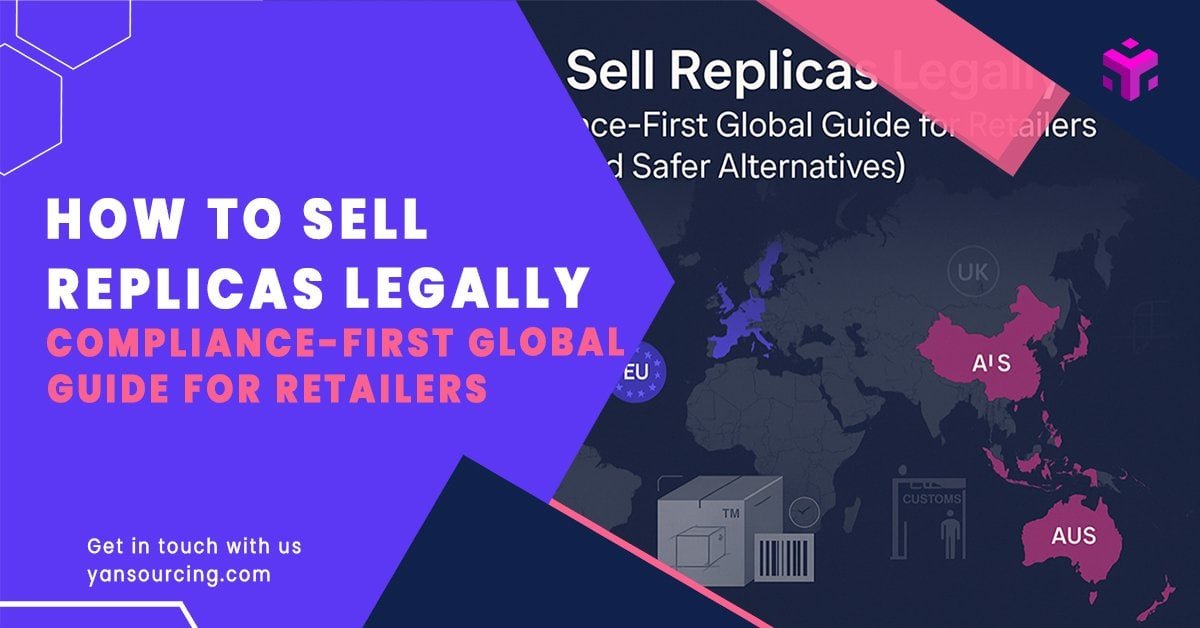
Informational disclaimer: This guide provides general information for retailers and e-commerce operators. It is not legal advice. For jurisdiction-specific decisions, consult qualified counsel.
Selling “replicas” and “dupes” can look harmless when logos are removed, but the legal reality is more complex. In my experience working with cross-border sourcing and e-commerce teams, the fastest way to avoid seizures, takedowns, and brand damage is to pivot from replica-minded thinking to compliant, original products.
This ultimate guide will help you understand the red lines globally (U.S., EU, UK, Australia), how platforms enforce, and—most importantly—how to execute a safer private label/OEM-ODM strategy.
1) What counts as a replica, dupe, or counterfeit? The legal spectrum

Let’s start with plain-language definitions you can apply day to day:
- Counterfeit: Goods bearing a spurious mark identical or substantially indistinguishable from a registered trademark, used without authorization, and likely to cause confusion. Counterfeits are illegal everywhere; they are subject to border detention, seizure, and destruction. See the U.S. CBP IPR overview and its consumer campaign “Fake Goods, Real Dangers” (CBP, 2024).
- Replica/Dupe: Colloquial retail terms for lookalike goods. Even without logos, these can infringe when they mimic the overall look and feel (trade dress) or a registered/unregistered design. The absence of a logo does not make a product safe.
- Inspired-by: Products taking general inspiration while avoiding confusing similarity in the overall impression. This path can be lawful when you steer clear of distinctive, non-functional features and claims of affiliation.
Why removing logos is not enough: Under U.S. law, trade dress can protect the overall impression of a product or packaging, if it’s distinctive and non-functional. See the USPTO Trademarks basics and the Lanham Act framework summarized in the CRS introduction to U.S. trademark law (2024).
Summary: If your product’s look would make an average consumer think it comes from a specific brand (even without a logo), you’re in infringement territory. Aim for differentiation, not duplication.
2) Core global principles you can apply
Across jurisdictions, you’ll see consistent guardrails:
- Trademarks and trade dress/passing off: Protect signs and the overall get-up that identifies source. Confusing similarity can trigger liability even without logos.
- Design rights: Registered (and sometimes unregistered) designs protect visual appearance. Copying unique shapes/surface decoration can infringe.
- Copyright: Protects original artworks/patterns; relevant to prints/graphics.
- Consumer protection: Misleading or deceptive conduct is prohibited; listing copy and packaging that imply affiliation can violate these laws.
- Customs enforcement: Border authorities detain/suspend suspected infringing goods; rights holders can act; importers must respond quickly.
Practical take: Evaluate the product’s silhouette, hardware arrangement, color-blocking, pattern placement, and packaging get-up. Modify anything that contributes to a confusing overall impression.
3) United States: trademarks, trade dress, design patents, and CBP reality
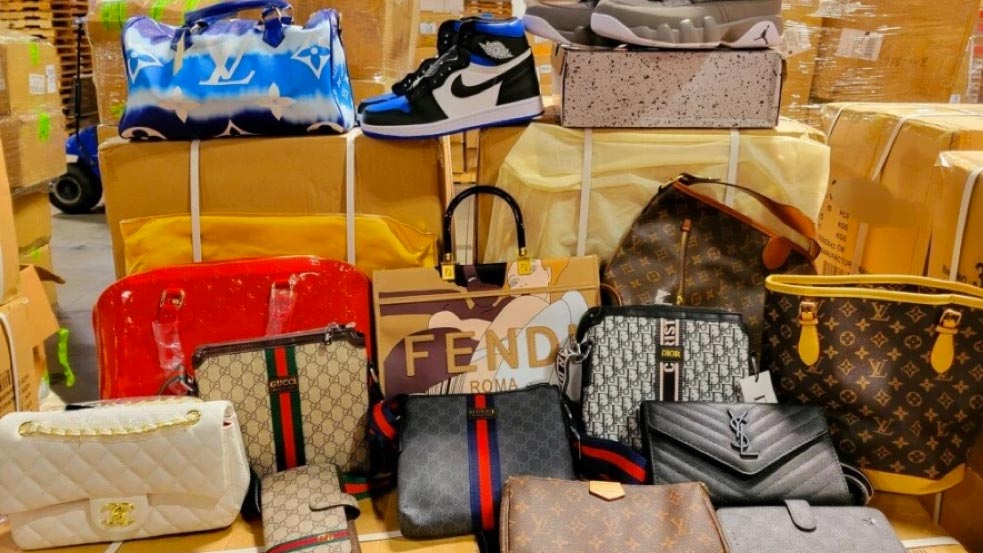
- Lanham Act: trademarks & trade dress
- Unregistered trade dress claims arise under §43(a) (false designation of origin). Distinctiveness (inherent or secondary meaning) and non-functionality are core tests. For foundational context, see the CRS introduction to U.S. trademark law (2024).
- Design patents
- Protects the ornamental design of functional items; can block lookalikes even without logos. See USPTO Design Patents overview.
- First-sale doctrine & gray market
- First sale applies to genuine goods, not counterfeits. Resale can still infringe if goods are materially different (e.g., packaging, warranty, formulation). The CRS overview above explains these limits.
- CBP enforcement at the border
- Rights holders record marks/copyrights to enable CBP monitoring via CBP IPR e-Recordation. CBP may detain, seize, and forfeit infringing goods; importers can petition. Learn the landscape at CBP IPR overview.
Examples you’ll encounter:
- A handbag with a distinctive clasp arrangement and quilting pattern that consumers associate with a specific brand: risk of trade dress/design claims even without logos.
- Sneakers that replicate a protected silhouette or outsole pattern: risk of trade dress/design patent claims.
- Beauty packaging with a unique bottle shape and color blocking: risk of trade dress/design.
U.S. summary: Removing logos won’t shield you from trade dress/design exposure. If you import lookalikes, expect platform takedowns and possible CBP action.
4) European Union: EUTM, registered/unregistered designs, and customs eAFAs
- EU trade marks
- Unit-wide protection under Regulation (EU) 2017/1001 via EUIPO. Start with the EUIPO trade mark portal.
- Designs: Registered and Unregistered
- Regulation (EC) No 6/2002 provides Registered Community Designs (up to 25 years) and Unregistered Community Designs (automatic 3-year protection after first disclosure in the EU). See the EUIPO designs portal.
- Consumer protection & lookalikes
- The Unfair Commercial Practices Directive prohibits misleading acts/omissions; lookalikes that deceive can trigger enforcement.
- Customs enforcement
- Under Regulation (EU) No 608/2013, rights holders can file Applications for Action (AFA) to enable detentions/seizures. From October 3, 2024, the EU requires mandatory electronic AFAs (eAFAs) via the IP Enforcement Portal (with national exceptions/phasing). See the European Commission’s 2024 notice on mandatory eAFAs and the implementing rule Implementing Regulation (EU) 2024/2399. For statistics, consult EU customs IPR facts & figures.
EU summary: Dupes that mimic distinctive visual features risk infringement under trade mark/design law and consumer protection rules. Customs are increasingly digitized and proactive.
5) United Kingdom: trade marks, passing off, designs, and Border Force AfA
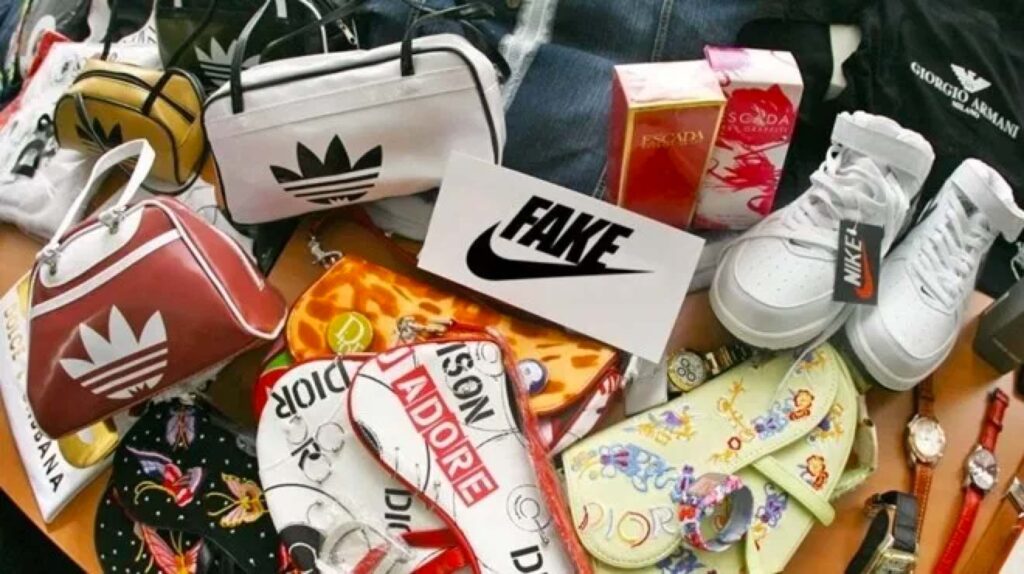
- Trade mark infringement
- Use of identical/similar signs causing likelihood of confusion under the Trade Marks Act 1994.
- Passing off (common law)
- Protects unregistered get-up through the classic trinity: goodwill, misrepresentation, damage. See the UK government’s IP crime & enforcement guide.
- Designs
- Registered designs protect appearance up to 25 years; unregistered design rights protect shape/configuration. Guidance via UK government designs collection.
- Border enforcement (AfA)
- Rights holders can file an Apply for Action (AfA) request to detain suspected infringing goods. See Apply for action to protect your IP rights.
UK summary: Even without logos, confusing get-up can trigger passing off and design claims. Border Force can detain shipments when rights are recorded and activated.
6) Australia: trade marks, designs, ACL, and ABF Notice of Objection
- Trade marks
- Registration and enforcement basics via IP Australia; start with IP Australia designs overview for visual appearance rights to understand design coverage alongside trade marks.
- Australian Consumer Law (ACL)
- Section 18 prohibits misleading or deceptive conduct. Packaging and listings that imply affiliation can violate the ACL. See ACCC guidance on misleading claims.
- Border enforcement (ABF)
- Rights holders file a Notice of Objection (NoO) with Australian Border Force; seizures can follow. Overview at ABF importing requirements and IP notices page ABF Notices – Intellectual Property.
Australia summary: Lookalikes that cause confusion or mislead consumers are risky under trade mark, designs, and ACL. ABF has clear processes to intercept infringing imports.
7) Platform enforcement: Amazon, eBay, Shopify
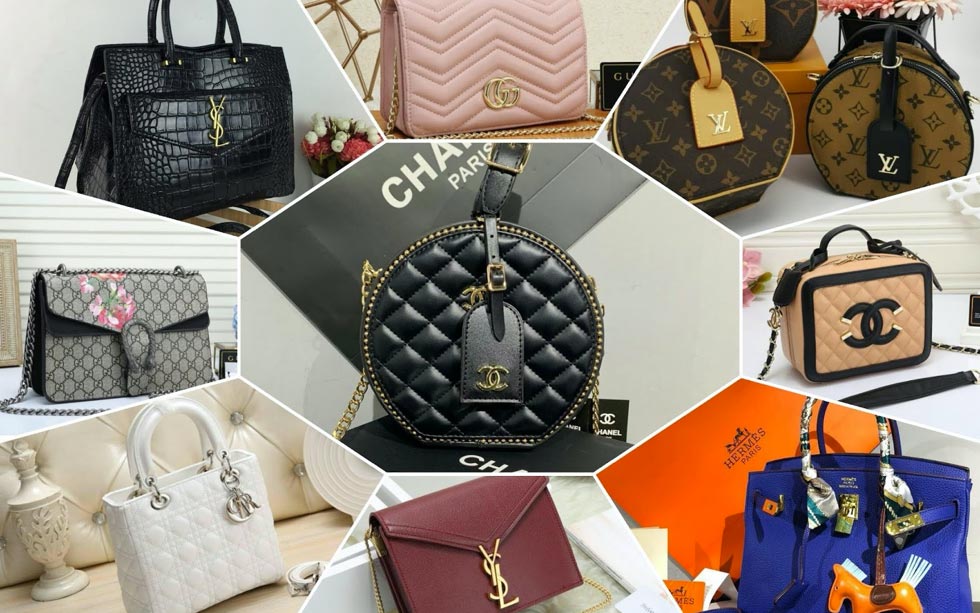
Marketplaces are aggressive on IP and anti-counterfeit. Prepare for proactive controls:
- Amazon
- Rights owners use Brand Registry and Project Zero to remove infringing listings. Review Amazon Brand Registry and Project Zero. Seller policies and appeals are in Seller Central Help.
- eBay
- VeRO allows rights owners to notify and remove listings. See eBay VeRO program.
- Shopify
- The Acceptable Use Policy prohibits illegal activities, including counterfeit sales; IP takedown follows a DMCA-style process. Review Shopify Acceptable Use Policy and IP Takedown Policy.
Platform summary: Even “inspired-by” products need careful listing copy and packaging. Avoid phrases implying affiliation (“compatible with [famous brand]” can be sensitive without a nominative fair-use context and clear disclaimers). Keep documentation ready for appeals.
8) Decision trees and checklists you can use today
A. IP clearance pre-sourcing checklist
- Pre-screen categories: handbags, sneakers, beauty packaging, consumer electronics form factors are high-risk for trade dress/design.
- Search for registered marks/designs: USPTO TESS, EUIPO eSearch, UK IPO, IP Australia.
- Identify distinctive, non-functional visual elements you must avoid (silhouette, hardware placement, color-blocking, pattern geometry).
- Engage counsel for equivocal findings; document conclusions.
- Keep a dossier: sketches, spec sheets, supplier quotes, photos showing differentiation.
B. Supplier vetting checklist
- Verify factory identity, licenses, and ownership; request references and audit history.
- Require IP compliance: contract clauses prohibiting use of third-party marks; warranties/indemnities; confidentiality.
- Ask for custom tooling/parts where feasible to enforce differentiation.
- Sample iteratively; test for deviations that could drift toward confusion.
- Plan inspections (AQL) with a focus on branding/packaging accuracy.
C. Packaging and listing copy controls
- No suggestive phrases implying affiliation or equivalence.
- Use your brand name prominently; avoid famous color names/pattern references.
- Accurate origin marking; correct HS codes; compliance labels.
- Clear product specs to avoid misleading expectations.
- Avoid comparative advertising unless reviewed by counsel.
D. Customs preparedness
- Maintain purchase orders, invoices, packing lists, spec sheets, and photos.
- Remove any references to famous brands in documents.
- Be ready to explain design differentiation.
- Understand local border processes (CBP petitions; EU eAFAs; UK AfA; ABF NoO timelines).
9) The safer alternative: Private label and OEM/ODM (step-by-step)
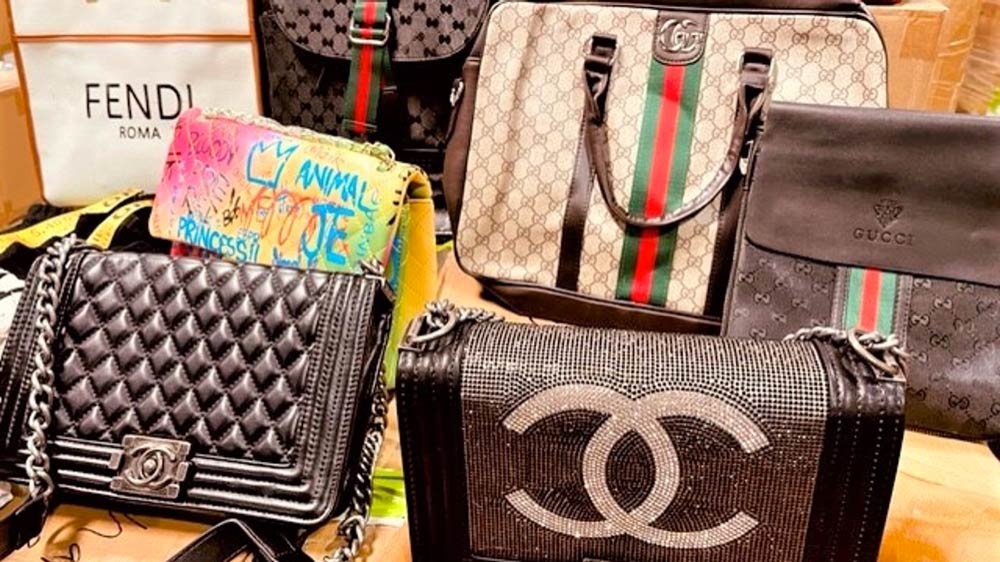
Pivoting to private label gives you control over design, branding, and compliance. Here’s a practical roadmap you can run in parallel with category research.
Step 1: Concept and differentiation
- Define the core functions and audience; list what makes existing market leaders recognizable (shape, hardware, color, pattern, packaging get-up).
- Decide what you will avoid and what you will change. Alter silhouette, material mix, hardware layout, and color-blocking to break the overall impression.
Step 2: IP clearance and filings
- Search trade marks/designs in target markets (USPTO, EUIPO, UK IPO, IP Australia). File your own applications for a distinct brand name/logo; consider design registrations if visual appearance is central.
Step 3: Supplier selection and contracts
- Shortlist factories with proven OEM/ODM experience in your category.
- Contracts: IP warranties/indemnities, unique tooling/parts clauses, prohibition on third-party marks, confidentiality, and change control.
Step 4: Sampling, testing, and QC
- Iterate samples until the overall impression is comfortably differentiated.
- Implement AQL inspections with specific checks for branding, packaging, and any features that could create confusion.
Step 5: Packaging, labeling, and listing
- Use your brand prominently; avoid suggestive phrases; comply with origin/label laws.
- Prepare listing copy that explains features without implying affiliation.
Step 6: Logistics and customs
- Keep a complete dossier (drawings, photos, invoices, packing lists). Be prepared for queries and show differentiation.
In practice, retailers often benefit from a trusted sourcing partner to coordinate these steps end-to-end. Working with a reputable sourcing agent or product development partner—such as Yansourcing—can help organize supplier vetting, sampling, QC, and logistics without cutting legal corners.
Neutrality note: You can achieve similar outcomes with any experienced sourcing agent or product development firm. Always validate capabilities and insist on transparent processes.
10) What to do if your shipment is stopped or your listing is taken down
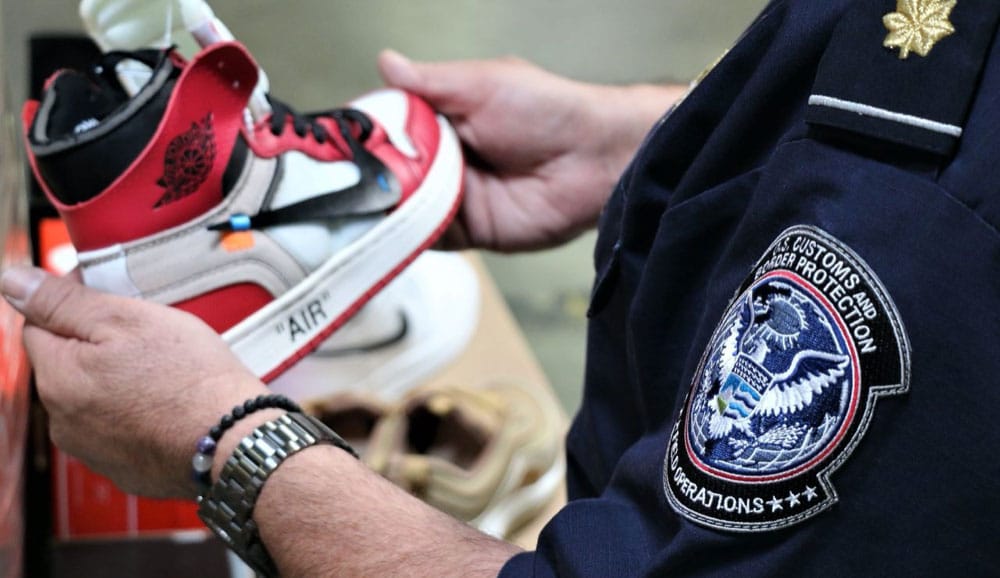
A. Customs detention/seizure
- United States: If CBP detains, you may receive a notice and a chance to respond or petition; consult counsel immediately and review evidence. Familiarize yourself with CBP’s IPR procedures.
- European Union: Rights holders file AFAs; customs may detain and notify. Timelines are tight; coordinate with counsel and provide evidence of differentiation.
- United Kingdom: Border Force acts under AfA; engage counsel and prepare your documentation promptly.
- Australia: ABF may seize under a Notice of Objection; importers and objectors have specific windows to act. Review the ABF notices page ABF IP notices.
B. Marketplace takedowns
- Amazon: Use the appeal mechanism in Seller Central; provide proof of your brand ownership and design differentiation; cite your filings/registrations.
- eBay: Respond to VeRO notices with documentation; consider adjustments if the overall impression is still too close.
- Shopify: Follow the IP takedown/counter-notice steps; ensure your store complies with the Acceptable Use Policy.
Operational tip: Avoid arguing “no logos” as a defense. Instead, show how your product’s overall impression differs and provide your registered brand/design assets.
11) Frequently asked questions (plain language)
1. Is it ever legal to sell replicas?
If “replica” means duplicating the distinctive look of another brand, no. If you mean “inspired-by” with genuine differentiation, you may be able to sell lawfully—after careful IP clearance and compliant branding.
2. Can I say “dupe” in my listing?
It’s risky. The term suggests equivalence/affiliation and can trigger consumer protection issues and platform policy violations.
3. What if a supplier says they make for a famous brand?
Treat it as a red flag. Do not use any marks, patterns, or proprietary molds. Require your own tooling and documentation.
4. Will first sale protect me?
First sale applies to genuine goods; it does not protect counterfeits or materially different parallel imports. See the CRS introduction to U.S. trademark law (2024).
5. How do I make my product “different enough”?
There’s no formula, but change the silhouette, hardware layout, materials, textures, and color-blocking. Ask counsel to review borderline cases.
12) Regional quick-reference summary
- U.S.: Lanham Act covers trade dress; design patents protect appearance; CBP detains/seizes; first sale doesn’t apply to counterfeits.
- EU: EUTM and RCD/UCD protect marks and designs; eAFAs streamline customs action; misleading practices are prohibited.
- UK: Passing off protects get-up without registration; registered/unregistered designs apply; AfA enables border detentions.
- Australia: Trade marks and designs apply; ACL bans misleading conduct; ABF NoO facilitates seizures.
13) Next steps: move from risk to resilience
If your current catalog relies on lookalikes, now is the time to pivot. Build a differentiated private label line with proper IP clearance, supplier contracts, QC, and compliant packaging/listing.
- Action plan for this week:
- Choose 2–3 categories and audit for trade dress/design risk.
- Draft a differentiation brief (features to change vs avoid).
- Start brand mark searches and file applications where viable.
- Shortlist OEM/ODM-capable suppliers.
Ready to de-risk your catalog and move fast on a lawful private label? Start a free private label project brief with Yansourcing—or work with any reputable sourcing agent—so you can scope requirements, timelines, and compliance checkpoints without guesswork.
